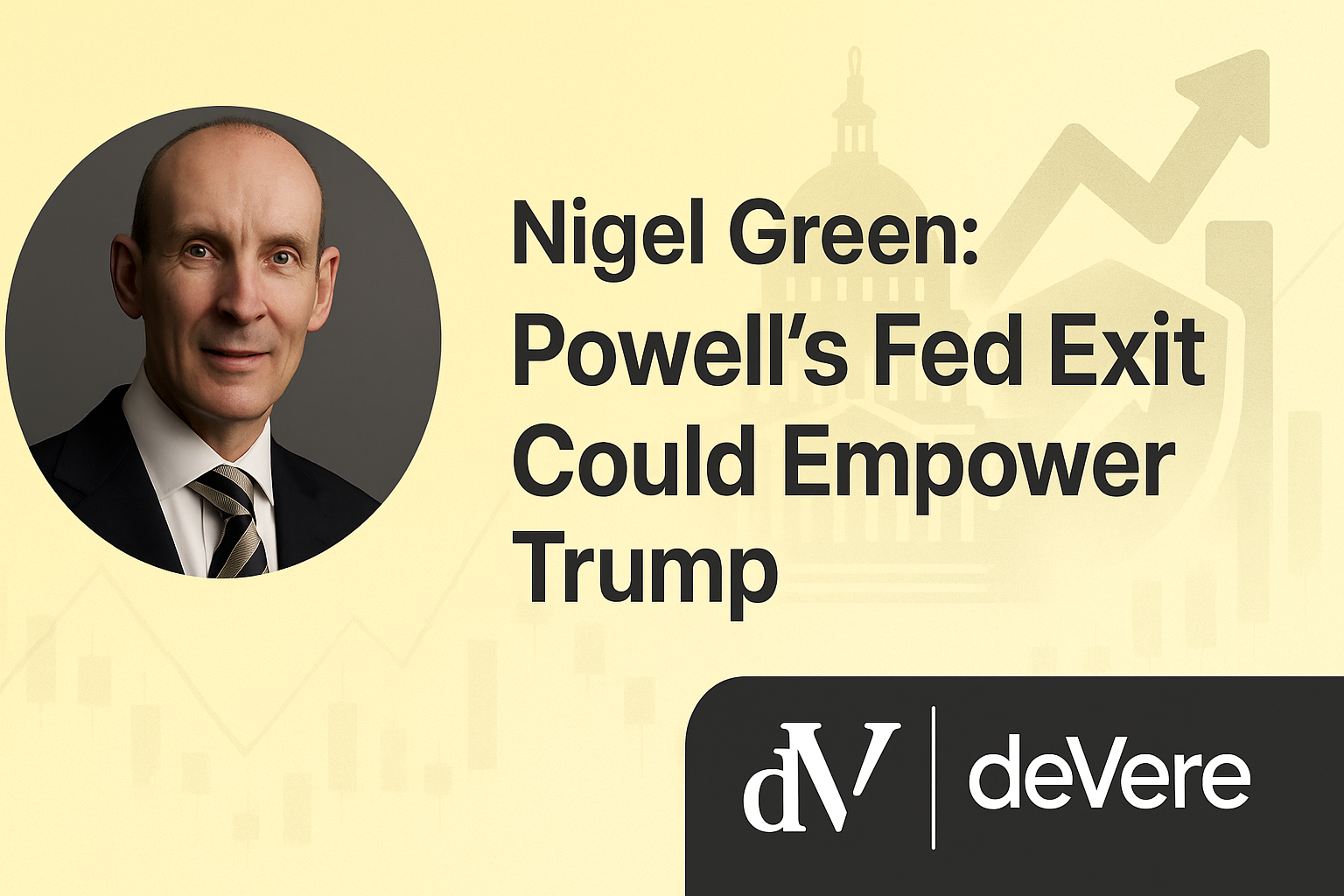Jerome Powell’s looming departure as Chair of the US Federal Reserve could hand President Trump significant influence over the world’s most powerful central bank – and with it the direction of global monetary policy, warns Nigel Green, CEO of deVere Group.
The warning comes as the Fed’s annual Jackson Hole symposium closes today in Wyoming, an event where policy shifts are often signalled and where investors are already looking beyond Powell’s remarks to the possibility of Trump shaping the institution’s future.
“Powell’s exit is not just about one individual stepping down. It could transfer power to Trump, giving him the opportunity to appoint a Fed chair who reflects his priorities.”
— Nigel Green, deVere GroupPowell’s term as Chair expires in May 2026, but the process of transition has already begun. Trump has nominated Stephen Miran to replace outgoing Governor Adriana Kugler, pending Senate confirmation, with a term running into early 2026. If Powell were to step down earlier from his longer-term position on the Fed’s board of governors, Trump could fill that seat directly.
“Markets move on expectations, not waiting for the official moment,” explains Green. “If investors believe Trump’s choice will soon shape policy, Powell’s influence will erode quickly. This is why the countdown to 2026 matters now.”
Jackson Hole underscores the stakes
Last year, academic work presented there highlighted a turning point in the labour market, paving the way for Powell to argue for looser policy, which culminated in a 50-basis-point cut. Trump derided the decision as too slow, a frustration that signals the type of Fed chair he would prefer to appoint.
“Trump could look for someone willing to cut more quickly, to align the central bank with his growth agenda and political programme… far more aggressive than Powell’s cautious approach.”
— Nigel Green, deVere GroupHistorical precedent
History shows how leaders engineer such shifts. Japan’s Shinzo Abe appointed Haruhiko Kuroda to spearhead radical easing under Abenomics. In Britain, Mark Carney’s early confirmation as Bank of England Governor reset expectations months before his predecessor left. Global precedent suggests Trump could follow the same path.
Implications for markets
The Fed’s decisions set borrowing costs not only for US households and businesses but also for governments, corporations, and investors worldwide. Shifts in US rates ripple into currencies, commodities, and capital flows. A Trump-influenced Fed could mean lower rates, a softer dollar, rising equities, and renewed crypto enthusiasm – but also risks of overheating, higher inflation, and challenges to Fed independence.
“The opportunities and dangers are equally significant. Once markets sense who might take Powell’s place, they will price in the change immediately.”
— Nigel Green, deVere GroupNigel Green concludes: “Powell’s eventual exit could transfer power to Trump in ways that fundamentally reshape the Fed. Investors should recognize that this shift is already coming into view and prepare now for its impact.”

